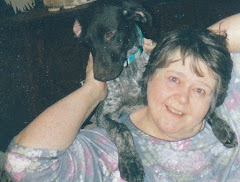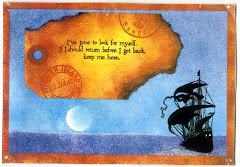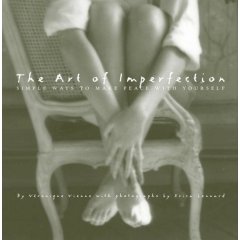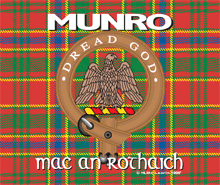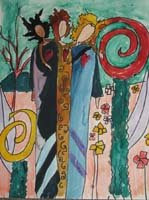
Today, Veterans’ Day, I salute my favorite veteran, my husband, Dan. With an offer to train as a medical corpsman, young Danny Fredericksen, from Williston, ND, age 18, joined the Navy to see the world. He never set foot on a ship; instead, he saw Vietnam.
Dan’s theory as to why he was sent to Vietnam is that he pissed off the head nurse at the Naval Hospital at Oceanside, California. Very shortly thereafter, instead of having a safe stateside job, he found himself, at age 19, in the jungle. Instead of a white sailor suit and hat, or dress Navy blues, he wore a helmet and flak jacket.
Dan – known to his comrades as “Doc Fred”, was in Vietnam from September of 1967 until September of 1968. That parallels my freshman year in college and the beginning of my sophomore year. While I was swanning my way through the University of North Dakota, he was living the hell that is war. Dan recalls that the only time – the ONLY time – he ever saw his Dad cry was the day that Dan went to Vietnam.
I did not know Dan while he was in Vietnam. I met him in 1970. Most of our first dates that late fall/early winter were held at The Highlander bar in Grand Forks, with its tartan-covered walls and blue-collar-neighborhood feel. During those dates, those tartan-covered walls and I absorbed Dan’s stories. I listened and he talked: about how he pulled dozens of leeches off his body after wading through rice paddies, about how he and his buddies, stoned, sat atop buildings back at the rear and watched flares light up the sky. About how terrible the Medevac choppers smelled while carrying the body bags. About how his best friend died in his arms.
Dan’s theory as to why he was sent to Vietnam is that he pissed off the head nurse at the Naval Hospital at Oceanside, California. Very shortly thereafter, instead of having a safe stateside job, he found himself, at age 19, in the jungle. Instead of a white sailor suit and hat, or dress Navy blues, he wore a helmet and flak jacket.
Dan – known to his comrades as “Doc Fred”, was in Vietnam from September of 1967 until September of 1968. That parallels my freshman year in college and the beginning of my sophomore year. While I was swanning my way through the University of North Dakota, he was living the hell that is war. Dan recalls that the only time – the ONLY time – he ever saw his Dad cry was the day that Dan went to Vietnam.
I did not know Dan while he was in Vietnam. I met him in 1970. Most of our first dates that late fall/early winter were held at The Highlander bar in Grand Forks, with its tartan-covered walls and blue-collar-neighborhood feel. During those dates, those tartan-covered walls and I absorbed Dan’s stories. I listened and he talked: about how he pulled dozens of leeches off his body after wading through rice paddies, about how he and his buddies, stoned, sat atop buildings back at the rear and watched flares light up the sky. About how terrible the Medevac choppers smelled while carrying the body bags. About how his best friend died in his arms.
(Below) A very different Dan from the one above. This badly-scratched photo is the only one from Dan's Vietnam days that we were able to salvage from our house fire.

I learned. I learned about Vietnam, about the terrible Tet offensive. I learned that Navy corpsmen are attached to the Marines. Navy corpsmen are not medics. Medics are Army. The Army fought in the south of Vietnam. The Marines fought up north, near the DMZ. I learned the names: Dong Ha, Quang Tri, Phu Bai, Chu Lam.
I learned the smaller, more personal things of war as well: That Louisiana Hot Sauce makes C-Rats (C-rations) somewhat more palatable. I learned that the sun goes down abruptly in Vietnam, with no sunset. I learned about short-timers’ calendars. I learned that Marines don’t wear underwear in the bush. When you get an attack of dysentery, it’s faster to get your pants down that way.
I listened, and I learned, and I saw. I saw how malaria racked Dan’s body with sweats and fevers for years afterward, and how tiny bits of shrapnel kept working their way out of his body. I see that Dan can barely tolerate hearing a helicopter pass overhead. And I know that it is true, what a blogging friend’s husband told me: that all Vietnam vets, whether they display overt symptoms or not, have post traumatic stress disorder.
I listened, and I learned, and I saw. I saw how malaria racked Dan’s body with sweats and fevers for years afterward, and how tiny bits of shrapnel kept working their way out of his body. I see that Dan can barely tolerate hearing a helicopter pass overhead. And I know that it is true, what a blogging friend’s husband told me: that all Vietnam vets, whether they display overt symptoms or not, have post traumatic stress disorder.

Thank you Dan, for serving your country, at a time when vets were reviled and spat upon when they returned home, not feted with parties and parades. Thank you for patching up your buddies and saving their lives. Thank you for enduring the serious wound you received.
We owe you and other veterans so much, no matter which war you served in – a righteous war or an unnecessary war, a declared war or a police action, a war that ended suddenly with surrender and armistice, or with retreat – it matters not.
(Below) Dan was interviewed by the local paper after returning home. About the situation in Vietnam, he said "We're just not accomplishing anything worthwhile. There's too much politics in the war and we should either go all the way or get out".
We owe you and other veterans so much, no matter which war you served in – a righteous war or an unnecessary war, a declared war or a police action, a war that ended suddenly with surrender and armistice, or with retreat – it matters not.
(Below) Dan was interviewed by the local paper after returning home. About the situation in Vietnam, he said "We're just not accomplishing anything worthwhile. There's too much politics in the war and we should either go all the way or get out".







